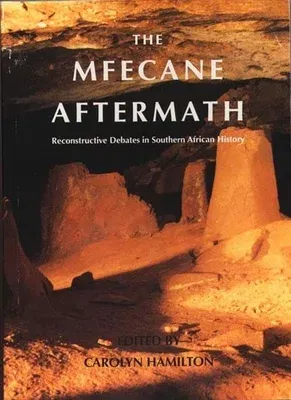Carolyn Hamilton
(Author)Mfecane Aftermath: Reconstructive Debates in Southern African HistoryPaperback, 1 January 1995

Qty
1
Turbo
Ships in 2 - 3 days
In Stock
Free Delivery
Cash on Delivery
15 Days
Free Returns
Secure Checkout

Print Length
512 pages
Language
English
Publisher
Wits University Press
Date Published
1 Jan 1995
ISBN-10
1868142523
ISBN-13
9781868142521
Description
Product Details
Authors:
Book Format:
Paperback
Country of Origin:
US
Date Published:
1 January 1995
Dimensions:
23.88 x
17.27 x
2.54 cm
Genre:
Southern Africa
ISBN-10:
1868142523
ISBN-13:
9781868142521
Language:
English
Pages:
512
Publisher:
Weight:
861.82 gm